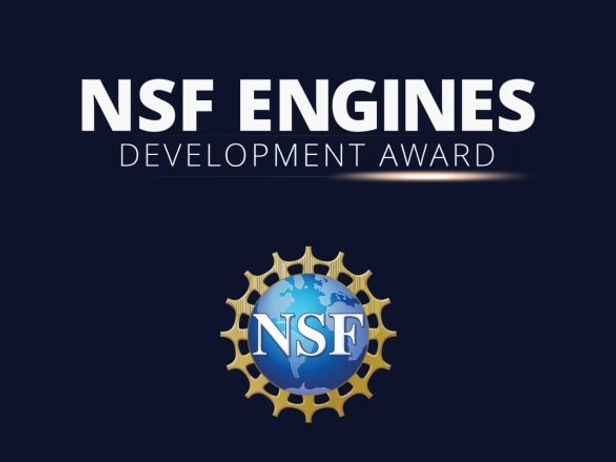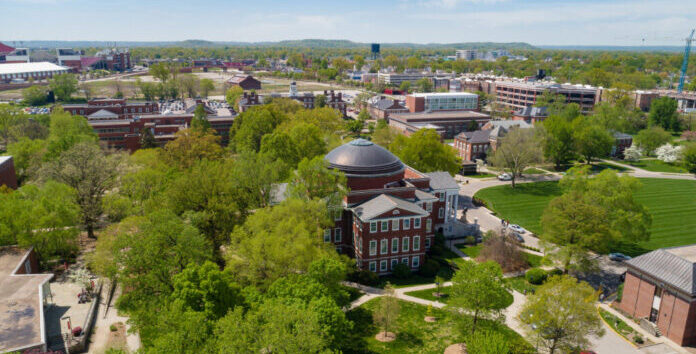The Kentucky Science & Technology Corporation (KSTC), a science and technology nonprofit, has received $1 million from the U.S. National Science Foundation (NSF).
The NSF Engines Development Award will support KSTC and its partners in advancing additive manufacturing throughout Kentucky and surrounding regions.
The KSTC-led project, which includes participation from the University of Louisville (UofL), will receive funding through the NSF Regional Innovation Engines program. This initiative has been authorized by the United States CHIPS and Science Act of 2022, which seeks to promote scientific innovations and develop key manufacturing capabilities in the US.
Other key project partners include the Kentucky Community and Technical College System, as well as trade organizations such as ASTRO America. The team will also leverage its new funding to compete for the NSF’s largest ever Engine award, worth up to $160 million.
“I was proud to help KSTC secure today’s federal award and to contact the NSF Director in support of their application. KSTC plays an important role in bridging the gap between Kentucky’s business leaders and the science community, promoting the resilience of our supply chains and sharpening our competitive edge,” commented Mitch McConnell, a U.S. Senator for Kentucky.
“When Kentucky’s businesses are able to leverage groundbreaking innovations from our leading institutions, like the University of Louisville, our entire economy stands to gain.”

Advancing additive manufacturing in Kentucky
The KSTC-led project is titled ‘NSF Engines Development Award: Advancing Manufacturing and Building Construction Technologies (NSF AMT).’ The goal of this collaboration is to create a regional plan to advance and streamline additive manufacturing technologies.
These advancements will help to reduce lead times, material costs, energy usage, and waste while boosting aerospace and semiconductor manufacturing capabilities in the Kentucky region.
Through its new funding, the NSF AMT team will create an industry-led technology cluster driven by research institutions such as UofL to create new opportunities for public-private partnerships. UofL will utilize its degree and technology badging programs to create a qualified workforce and leverage its research and innovation experience to bolster AM technology innovation.
In particular, the University will connect its Kentucky Manufacturing Extension Partnership (KY-MEP) statewide resource center to the NSF AMT project. It will also provide access to its technology research labs, including the Additive Manufacturing Institute of Science & Technology. To grow business engagement and showcase the potential of additive manufacturing, UofL will host a series of events, workshops and demonstrations over the next year.
Louisville is well positioned to lead this technological growth, hosting over 2,400 manufacturing firms ranging from food and beverage to automotive verticals. The collective workforce of these companies exceeds 82,500 people.
“UofL is committed to empowering small and medium enterprises in our region with the latest advancements in additive manufacturing,” stated Will Metcalf, UofL associate vice president for research and innovation. “Through our NSF Engines Development award and other efforts, we will engage in training and outreach to help these businesses thrive in an increasingly competitive market.”
The NSF AMT team will now work to strengthen existing partnerships and create new research and development pathways to advance additive manufacturing of components ranging from medication to computer chips. The project partners hope to submit a proposal for the $160 million NSF Engines award within the next two years.

Enhancing AM capabilities in the US
Amid global challenges to imports and supply chains, North America is seeing increased efforts to enhance its domestic manufacturing capabilities through industrial 3D printing.
A key proponent of these efforts is America Makes, the United States’ National Additive Manufacturing Innovation Institute. Founded in 2012, the organization aims to increase the adoption of 3D printing in the country to advance its global manufacturing competitiveness. To achieve this, the institute regularly launches project calls and provides financial backing to member organizations that offer novel approaches to common issues within the 3D printing industry.
Last month, America Makes partnered with the National Center for Defense Manufacturing and Machining (NCDMM) to announce a new $6.6 million project call. Named IMPACT 2.0, this is an extension of last year’s “Improvements in Manufacturing Productivity via Additive Capabilities and Techno-Economic Analysis” (IMPACT) project call.
The new project call will award seven grants, with the level of funding varying based on specific topics. These include advancing techniques for incorporating functional surfaces and complex geometric features into forgings and developing a techno-economic analysis tool for metal additive manufacturing process selection. Previously, America Makes has provided $11.7 million to improve 3D printing productivity, and $1.2 million to enhance the sustainability of additive manufacturing process.
Elsewhere, 6K Energy, a division of advanced material specialist 6K, recently partnered with metal recycling firm Aqua Metals to establish a circular material supply chain for lithium-ion battery materials.
Reportedly the first of its kind in North America, this partnership will see Aqua Metals supply 6K Energy with recycled battery materials. The company will then leverage its UniMelt microwave plasma technology to convert this into cathode active materials (CAM), which will be sold to domestic battery manufacturers as part of a circular US-based supply chain.
This agreement aligns with the US Government’s efforts to restore its supply chain and manufacturing capabilities. So much so, the partnership qualifies for domestic content incentives under the Inflation Reduction Act (IRA).
Want to help select the winners of the 2024 3D Printing Industry Awards? Join the Expert Committee today.
What does the future of 3D printing hold?
What near-term 3D printing trends have been highlighted by industry experts?
Subscribe to the 3D Printing Industry newsletter to keep up to date with the latest 3D printing news.
You can also follow us on Twitter, like our Facebook page, and subscribe to the 3D Printing Industry Youtube channel to access more exclusive content.
Featured image shows the NSF Engines Development Award logo. Image via The Kentucky Science & Technology Corporation.


